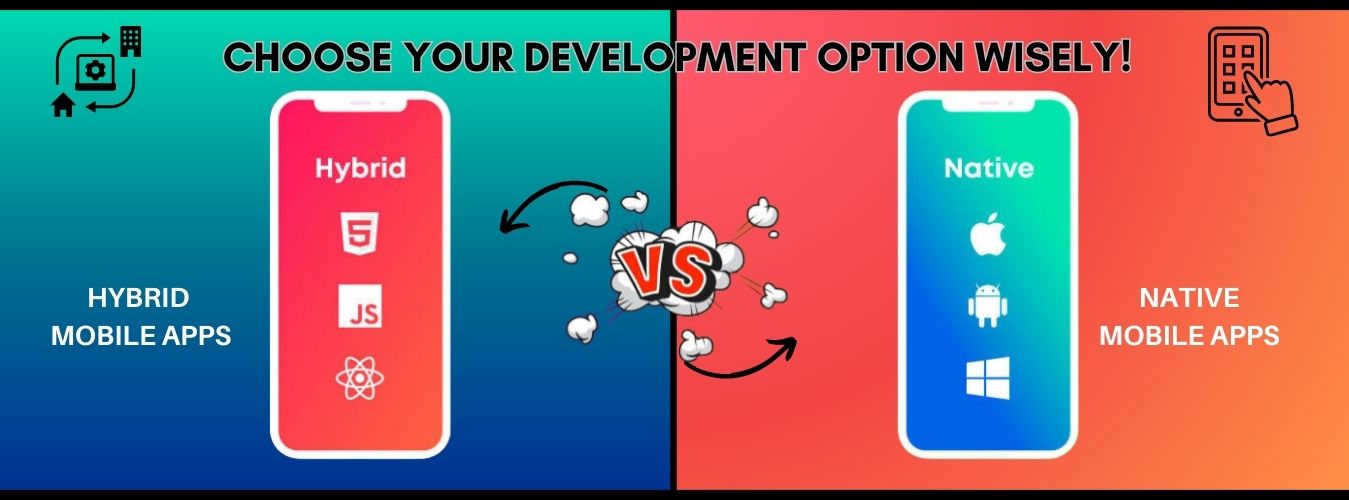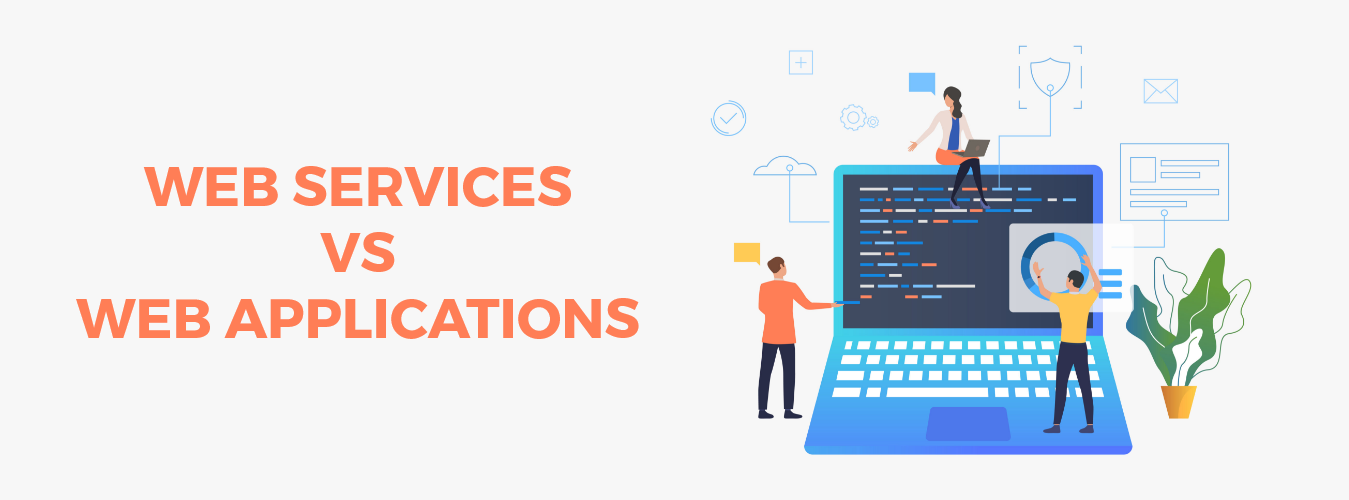Overview
Mobile apps have taken over the entire industry, whether it is clothing, groceries, or health care. This post is beneficial if you’re looking to create a mobile application. Let’s get started! You will learn a lot of crucial information here about native apps vs hybrid apps, including the type of strategy you should choose for app development. Mobile apps are reshaping various industries, including retail, food service, and healthcare. This post is for you if you want to create a mobile application to increase your company’s revenue. You will discover many other details, including whether you should choose a native or hybrid strategy for app development. Let’s get going and learn more!
Crafting Your Ideal Mobile App/Experience Starts Here!
Ready to elevate your business? Your custom app is just a click away.
Yes Let’s goWhy is picking an application development strategy important?
Making a custom mobile application development decision is crucial to create a high-performing, economic, and user-friendly application. Business owners have many original and consumer-pleasing ideas that they want to execute, but they frequently fail because they don’t consider the development approach. Business owners and application developers can choose an application’s nature, capabilities, cost-effectiveness, and user-friendliness using one of three major application development approaches. Each strategy gives the applications different benefits, drawbacks, possibilities, and goals.
What is a native app?
Any app that can be downloaded and installed on your mobile device is called a native app. Native apps run independently on your device and frequently access various features to operate. Proper mobile apps aren’t the same as websites, even when goods or programs are run online as web apps (such as a social media platform). They need to be created as stand-alone programs. Developers must adapt native apps to work well with users’ phones or devices because various operating systems require different apps. This means that because web apps must download all of their data from a web server, they operate slower than native apps on the operating system for which they were designed.
Advantages of Native Apps
Speed
Apps that are native to a platform are those that fit that platform only. They operate as a result of utilizing the device’s built-in features, making them extremely quick. Even applications that use a lot of processors will function without any issues. It is suggested for games and applications because of this speed improvement.
Better App Performance
The superior performance of native apps over their cross-platform cousins is one of their most significant benefits. They usually have fewer bugs and operate, load, and execute more quickly. This is due to several factors. One is that the operating system is unnecessary because the app code operates on top of it. Contrary to web applications, no intermediary software layer could significantly impede execution.
Better Security
Applications’ security is critical, and native apps are far more secure than cross-platform ones. It is designed for a specific platform where the data is kept encrypted and is protected by multiple OS layers. As a result, it minimises dangers and guarantees high data security.
What is Hybrid App?
A native mobile app (a program created for a particular platform, such as Android or iOS), and a web app are both components of a hybrid mobile app (an app that can be accessed on the internet via a browser). Cross-platform capability is provided via the use of well-known front-end Top mobile application development technologies and languages including HTML5, JavaScript, and CSS. Developers do not need to write unique code for Android and iOS, to put it another way. They can support various platforms while just having to write code once for a mobile app. After users obtain and install a hybrid app locally from an app store, the app’s native shell will connect to the capabilities of their mobile platform via an embedded browser.
Advantages of Hybrid Apps
Faster Development Cycle
Due to the benefit of having a single codebase, hybrid mobile application development is quicker than native app creation. In actuality, hybrid apps would only take half as long to create as native apps. Businesses can quickly release an MVP, which is a huge advantage. Because of this, they can enter the market quickly and gain a competitive edge.
Escape limitations Apple App Store
An application must be filed and wait for validation before it can be made available on the Apple App Store. Whether it is a first application or an update, as well as the time of year, will affect how long it takes. Usually, it takes a day or seven. Thus, hybrid apps greatly benefit developers who want to update their apps frequently because they don’t require resubmitting the new version if the changes don’t affect native code.
Platform Support
By default, hybrid applications are cross-platform. There is no requirement to create the app specifically for each operating system, unlike native apps. A single code base can handle multiple operating systems. For instance, two devices running the Android and iOS operating systems can have hybrid apps installed. Users can target a wider population thanks to this.
Lower Cost
Since there is only one codebase and a hybrid app is cross-platform capable, the expense of switching from one platform to another is significantly reduced. To this is added the fact that a single development team can carry out the complete process, including updates, bug fixes, and features.
Enhanced UI/UX
The benefits of native and web applications are combined during hybrid mobile development. It’s about embracing the web and adapting it for smartphones. It provides a flawless and consistent user experience on both iOS and Android devices. The lightweight hybrid app UI also facilitates the quick loading of material and graphics. The applications adjust to various device screens to enable quick data display and seamless data streaming. The outstanding UI experience increases the likelihood of the app store approving the application.
Conclusion
Businesses looking to create a successful mobile application must make the correct app development decision. Companies can make wise decisions by understanding the distinctions between native and hybrid app development and carefully considering aspects like target audience, app functionality, development timetable, and budget. Businesses can create top-notch mobile apps that cater to their unique requirements and promote growth by selecting the appropriate strategy.
Crafting Your Ideal Mobile App/Experience Starts Here!
Ready to elevate your business? Your custom app is just a click away.
Yes Let’s go







